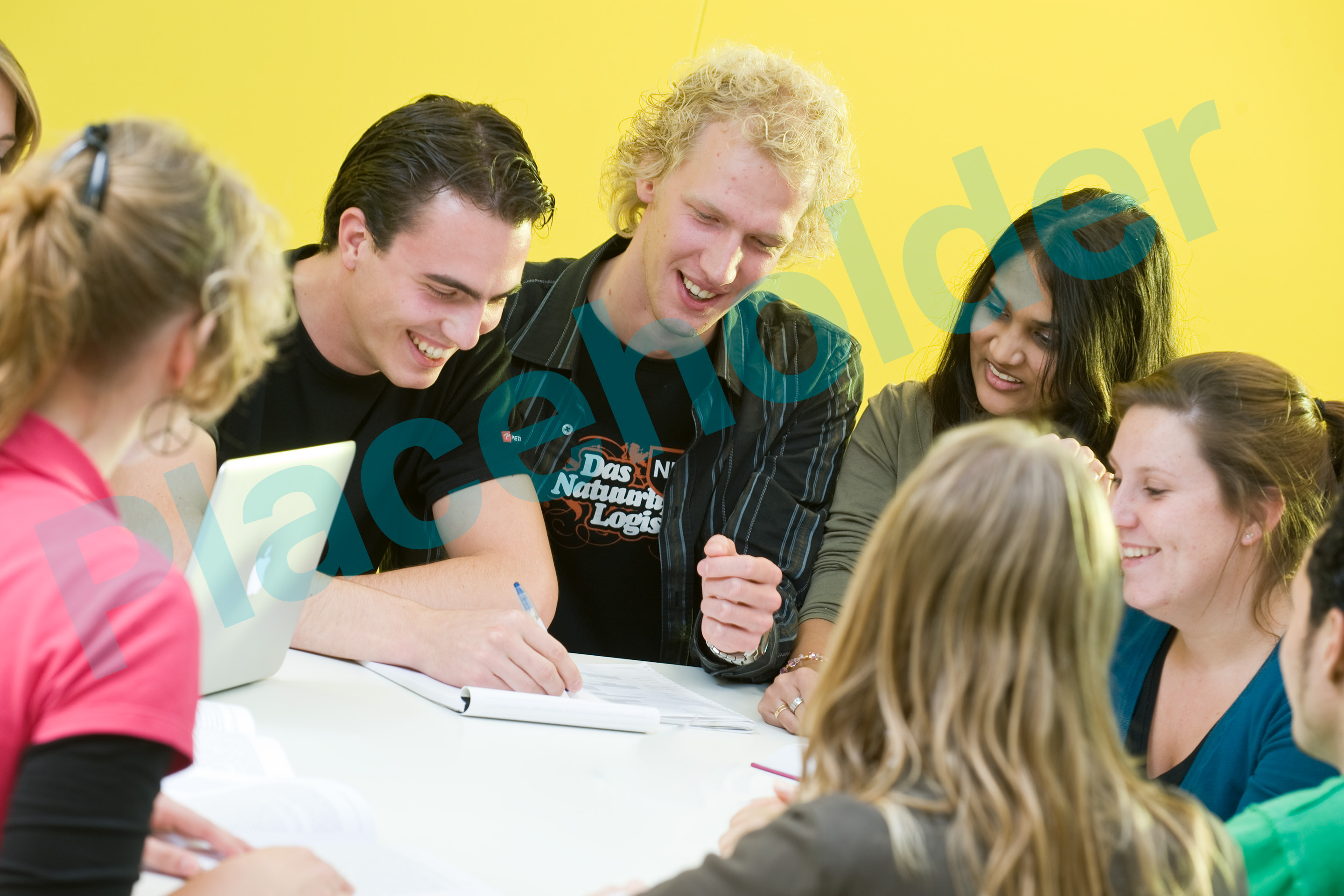Hospitality in the hospital: students link hotel knowledge to patient care
21 February 2022
One talks about guests, the other about patients. One is passionate about 'hospitality', the other is passionate about providing good care. Together, they are committed to better health and care for people with cancer.

One talks about guests, the other about patients. One is passionate about 'hospitality', the other is passionate about providing good care. Together, they are committed to better health and care for people with cancer. Students from the Hotelschool The Hague (campus Amsterdam) and the nursing study program at The Hague University of Applied Sciences are combining their expertise in the study 'A five-star experience at home' that is carried out by the Medical Delta Living Lab Better In Better Out.
Being admitted to hospital for an operation has a major impact on people with cancer. Even if the operation went well from a medical point of view, patients often have a lot of uncertainty after their discharge from hospital. Naturally, they receive information about care at home from the doctor and from the nurses. Practice shows that when patients return home, they are not sure what they should do or not do. This situation can lead to slower recovery and even unnecessary readmission. The Medical Delta Living Lab conducts research into faster and better home recovery of colon cancer patients after surgery. The research 'A five-star experience at home' focuses on improving the discharge process or check-out, as the hotel industry puts it.
Hospitality
What is the experience of the hotel school students in healthcare? "People remember the last contact, the so-called 'touch point', best. We want to make that moment a good experience in the hotel industry," explains Zack Koster. "A big difference, of course, is that you go to a hotel for pleasure and to a hospital for very different reasons." Within the hotel industry, hospitality is an important value. Sietske Kleuver explains: "In popular speech, hospitality is a welcoming experience. A pleasant restaurant, friendly staff, a clean toilet, for example. But there's much more to it than that. Do you feel safe? Are you listened to and do they take your wishes into account? Can you make your own choices? If you look at hospitality in this way, there are plenty of starting points for implementing this core value from the hotel sector in healthcare. After all, a hospital stay consists of more than just medical care.

Involved in choices
The students of both disciplines work on the research over a period of 10 weeks. When one student has finished, the other takes over and builds on the earlier insights. Kaya Zwaan has almost finished her part of the research. She investigated the transition from hospital to rehabilitation centre. "I started with literature research and then conducted interviews with patients, family members and healthcare professionals. I found out that patients do not feel involved in the choices that are made when they are discharged from hospital. But they really want to be." Student Shay Soerdjbalie will soon start his research. "I know people who have died of cancer or are in recovery. I feel I can contribute more to this research than to a study on global warming or sustainability. Those are such big issues. I'm going to do research in hospitals and compare the situation in the Netherlands with that in countries like Germany, Switzerland and Austria. How is aftercare organised there? And what can we learn from that?
Interviews
Interviewing a hotel customer is different from talking about experiences with cancer patients recovering after surgery. How did the students prepare for that? Luup van Gemert: "I know quite a few people who are currently dealing with a serious illness. So I asked them very carefully: how could I approach you without it being too close and too hurtful? Zack says he benefited a lot from the hospitality training during the course. "You learn to be clear, because you are managing expectations. And you learn to read someone, use the right tone of voice, empathise with the other person's situation, show that you understand the customer's story and check whether your story is clear."
Small step, big difference
Rosalie Crezee has now completed her part of the research. "I come from a family of nurses and have been told from an early age what happens behind the scenes in a hospital. I have actually heard all my life that a lot of things could be done better. That's why I found it so interesting to delve into this subject. The hospitality industry can certainly offer added value to the health care industry. Sometimes it's about small changes in behaviour that cost little time and money, but which can make a big difference to the patient, the customer." An example of such a change is to accompany patients from the waiting room to the appointment and to help them after the appointment.
This is the first part in a two-part article about students' contributions to the study ‘A Five-Star Experience at Home’. The next article focuses on the HBO nursing students. What are their experiences and what have they learned from working with the students of the hotel school? The second part will be published in April.